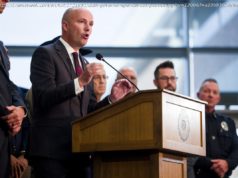Writers from across the political spectrum discuss the disclosure of Donald Trump Jr.’s emails about meeting with a Russian lawyer.
The political news cycle is fast, and keeping up can be overwhelming. Trying to find differing perspectives worth your time is even harder. That’s why we have scoured the internet for political writing from the right and left that you might not have seen.
Has this series exposed you to new ideas?
Tell us how. Email us at ourpicks@nytimes.com .
• James S. Robbins in USA Today:
“These days, you don’ t need a crime or a cover-up to trigger outsized political outrage, just a heavy dose of bad optics.”
Mr. Robbins’s article reflects how many on the right have sought to defend Donald Trump Jr. and the administration after a week of bad press. He suggests that Mr. Trump’s meeting with the Russian lawyer Natalia Veselnitskaya could have been a setup by Fusion GPS, a democratic opposition research group. He also points to a Politico story from January that detailed the Ukrainian government’s efforts to help the Clinton campaign, calling it a “solid case” for “actual collusion.” R ead more »
_____
• Andrew C. McCarthy in National Review:
“But the question is not whether collusion is a crime. It is whether collusion is a high crime or misdemeanor.”
Mr. McCarthy bemoans the fact that many in the news media are not informed “about how our constitutional system is supposed to work.” Impeachment, he reminds his readers, is a political issue, not a legal one, and it is the main lever in the Constitution’s tool kit to respond to “egregious executive malfeasance.” Therefore, partisan “bickering” over crimes of collusion miss the point. Mr. McCarthy, who identifies as a reluctant supporter of the president, writes that our standard for executive leadership should extend way beyond the low bar of “nothing he has done is indictable.” Read more »
_____
• David French in National Review:
“This isn’ t the smoking gun that proves actual ‘collusion’ with Russia, but rather evidence that Trump Jr., Manafort, and Kushner tried to collude with Russia.”
Mr. French maintains that he always needed more information when it came to Russia’s connection to the Trump administration, citing his skepticism of anonymous sources in the media. Now that the emails to Donald Trump Jr. have been made public, he feels comfortable calling the Russia investigation a “national necessity.” Read more »
_____
• John Podhoretz in The New York Post:
“There is too much focus on the criminal aspect of this event, which might or might not be significant. There is not enough focus on the moral aspect of this event, which is far more significant.”
Unless the people involved in the meeting are lying — and Mr. Podhortez allows that this might be the case — this is not the smoking gun signaling collusion. Instead, Mr. Podhoretz urges his readers to focus on Donald Trump Jr.’s morality, writing that his willingness to disrupt the election by working with a foreign power defines the word “disgraceful.” The Editorial Board of The New York Post has a less flattering characterization of the president’s son: In this op-ed, the editors call him an “idiot.” Read more »
_____
• Yochi Dreazen in Vox:
“The other shoe has finally fallen, and the Trump presidency may fall with it.”
Typically, Mr. Dreazen writes, comparing political scandals to Watergate is “a very dangerous thing to do.” But if there’s evidence that the president knew about his son’s meeting with a Kremlin-connected lawyer, this scandal may rise to that level. And while we may not be at impeachment just yet, “we’ re getting much closer.” Read more »
_____
• David A. Graham in The Atlantic:
“If Trump really knew nothing about the June 9 meeting, one wonders what it was that he was so eager to suppress in his calls to the intel chiefs and his firing of James Comey.”
In light of how absolute the Trump administration’s denials have been against allegations of collusion, and in light of recent revelations that contradict these denials, Mr. Graham wonders “which of the other allegations are true, too?” Read more »
_____
• Joan Walsh in The Nation:
“This is unlikely to end well for Republicans, though we may not be close to the end.”
The only thing that is certain, according to Ms. Walsh, is that Donald Trump Jr. is a “liar.” What we don’ t know yet, she writes, is whether his actions crossed the line into criminality. That will be for the special counsel, Robert S. Mueller III, to decide. Read more »
_____
• Perry Bacon Jr. in Five Thirty Eight:
“It is the Republican reaction — and especially the congressional Republican reaction — to Russia stories that really matters most.”
For this latest scandal to really stick, Mr. Bacon argues, Republican leaders must take a public stand, and so far, there’s no evidence that they have the will to do so. Read more »
_____
• Bob Bauer in Just Security:
“Under campaign finance regulations, the meeting could without question be considered a solicitation.”
Is accepting information, or opposition research, tantamount to accepting money from a foreign government? It seems that this might be the central question in determining the legality of Donald Trump Jr.’s meeting with Ms. Veselnitskaya. Mr. Bauer, a former counsel to President Barack Obama, explains how the younger Trump’s actions may have implicated the larger Trump campaign in violating campaign finance laws. Read more »
_____
Want the Partisan Writing Roundup in your inbox? Sign up for the Morning Briefing Newsletter or the What We’ re Reading Newsletter.
Have thoughts about this collection? Email feedback to ourpicks@nytimes.com .






